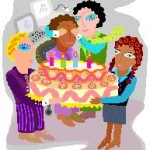My fandom years writing fanfiction helped me a great deal. By providing me with an audience of fellow fans, and the inspiration to write regularly on a subject about which I was passionate, I grew from a juvenile writer into a teller of stories. However, when I changed my focus from fan fiction to original novels-something I could publish-I realized there were certain aspects where my fan fiction experience had not helped me.
Worldbuilding from scratch. In fan fiction, you’ve got a setting already laid out for you. This is more than just physical locations; it’s the “rules” of what is possible in that world. How does magic work? What technology is, and isn’t, available? What is the major conflict? What are the central themes? Building an internally consistent set of rules isn’t easy, and it’s vitally important: a poorly designed set will leave readers wondering why something previously impossible is suddenly possible, or why the hero struggles under restraints that don’t bother the villain, or why the hero is at odds with the villain to begin with.
Character introduction. In fan fiction, a writer can assume his readers are going to know who Naruto is, or who Spock is, or who Bella is, and all the important details about the character’s appearance and personality. In an original work, writers need to remember that if they don’t convey it, their readers won’t learn it-and better yet if they can convey it without the old “my character looks in the mirror and describes what she sees” trick.
Cast dynamics. In fan fiction, even if you make up your own characters, you’ve also got a main cast of canon characters to work with. There’s a difference between adding a new character into an established cast, and building, from scratch, a group of characters with believable group dynamics. In short, every group has a “character” of its own. A group comprised of five dynamic leaders-or five timid wallflowers-isn’t going to last, or convince your readers of its believability, unless at least some members of the group begin evolving and changing to fill different roles.
Professional discipline. If you get bored with a fan fiction story, you can go do something else. Or turn your originally-intended romance into splatterpunk horror. You’re not getting paid; you can do as you please. It’s entertainment. This isn’t the case when you’re under contract to produce something on a certain subject in a certain time frame.
When to walk away (Internet fame vs long term career); or, If you don’t want to be an amateur forever. About three years ago I was getting a lot of positive feedback from my fan fiction. Writing quick short stories, posting them on the internet, and enjoying the response was a thrill; putting another 5000 words on a novel was a long slog in comparison. In the end, though, a complete novel-something publishable-will be a bigger accomplishment, and with this goal in mind, fan fiction is now an occasional treat for me, not the focus of my writing.
I don’t think there’s anything wrong with amateur writing-writing for pleasure. It’s a state of mind where people can explore and experience, hone their craft, and learn to love the act of creation. Nor do I think there’s anything wrong with the choice made by several fan fiction writers of my acquaintance who, although they have story telling skills equivalent to professional authors, choose that they would rather pursue something else to earn a living, and reserve writing for a hobby-something they do for entertainment.
Creating original work for publication is a different experience from the fan experience. It requires privacy-putting samples of your original work up on the Internet may disqualify your work as being “previously published,” or open you up to having your work plagiarized. It requires you to create something that will excite and interest you, through the long hours of crafting something that’s not already a pop culture phenomenon. It requires a dedication to persevere and a consideration for the desires of your readers and potential publishers. It requires the groundwork to build a coherent world for your characters to inhabit. These factors have nothing to do with the quality of the work itself, and everything to do with the creation of a professional writing lifestyle, as opposed to an amateur’s hobby.





